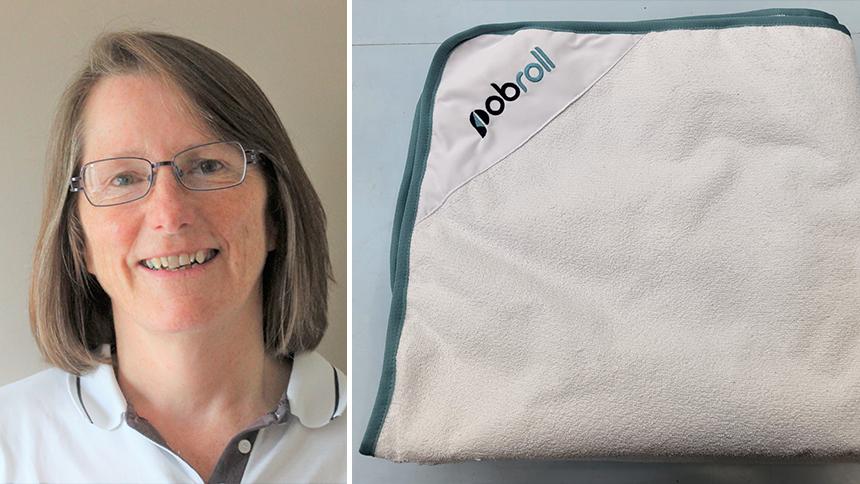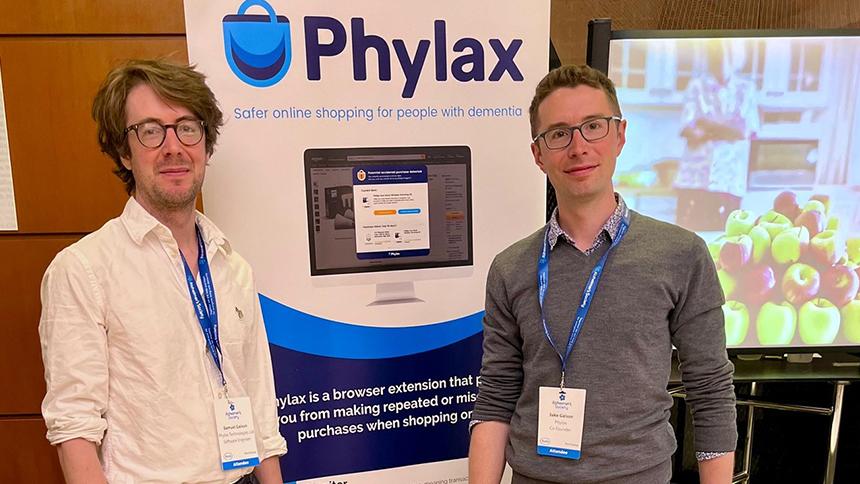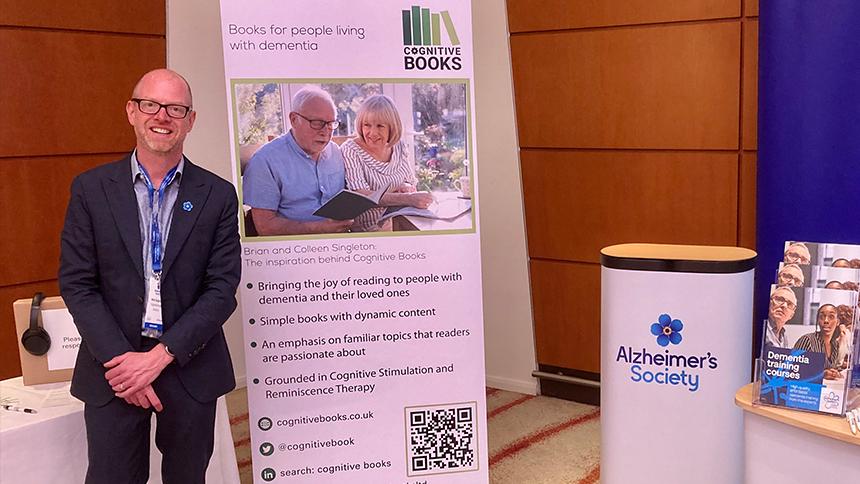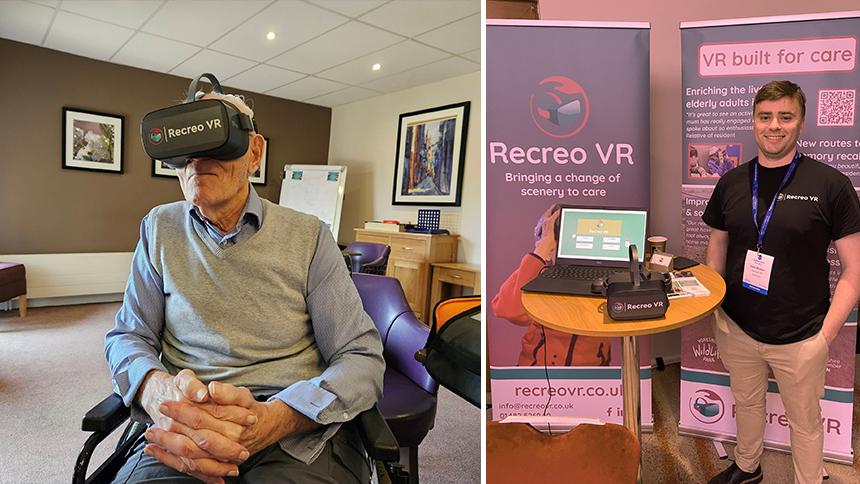Latest innovations: meet our Accelerator Programme partners
Our Accelerator Programme helps new products for people affected by dementia to become a reality.
Better bed baths
When physiotherapist Pat O’Brien saw how cold and embarrassed people got while having a bed bath – and how wet the bed linen got – she set about finding a solution.
I didn’t intend to make the Pobroll, I set out to buy it.
But I couldn’t find anything which was both warm and soft as well as waterproof, so I made it myself!

Pat O’Brien and the Pobroll
The Pobroll is a waterproofed terry-cotton wrap that someone can be rolled into.
It creates a better experience by keeping them warm and cosy throughout their bed bath.
Pat, also a moving and handling instructor, says, ‘It allows for a slower, more careful wash, while the person remains covered and dignified.’
Safer shopping online
Phylax was inspired by someone Jake Galson knew who developed young-onset Alzheimer’s and kept buying things accidentally.
‘They often purchased the same thing multiple times, which could be hard to return,’ says Jake.
When we started talking to more people, we realised this wasn’t unusual.

Jake and Sam Galson
Jake and his brother Sam, both software developers, created Phylax to be installed on a web browser.
It doesn’t block purchases or store financial details, but prompts you if it detects a repeat or accidental purchase.
‘In future, we hope Phylax will be used to prevent scams and fraud too,’ says Sam.
They’d also like to develop a ‘carer hub’ where shopping habits can be monitored remotely.
Joy of reading
After his dad – an avid reader – was diagnosed with Alzheimer’s, Matt Singleton was advised to stop buying him books because he didn’t read them.
‘I wasn’t having that,’ says Matt, who instead created a special book that his dad rarely put down.

Matt Singleton
Matt developed further prototypes, resulting in Cognitive Books, and the first title should be launched soon.
‘People with dementia can lose the thread of a story,’ says Matt, ‘So the books are about familiar topics from their youth.
They’re written for adults but are easy to understand, and each page tells its own story.
'The science is grounded in cognitive stimulation therapy and reminiscence therapy but, above all, it’s about joy,’ says Matt.
Immersive experiences
Software developers Alex Lancaster and Sam Rooker bring meaningful experiences to people with dementia in their own home.
Recreo VR (virtual reality) headsets allow you to immerse yourself in an environment, without needing additional devices or apps.
‘Recreo VR improves wellbeing for people with dementia by reconnecting them with places from their past,’ says Sam.
‘The VR headsets really open people up, helping them to share memories,’ adds Alex.

Recreo VR and Sam Rooker
Sam’s grandmother, who had dementia, also inspired Recreo VR.
‘We took her to the beach and were driving along a road she had driven down many times when she became really animated,’ says Sam.
‘This is what we want to give people access to.’
Help with routines
Else London is developing a product that can notify you to do a task, and then guide you through doing it with sensory prompts, such as sounds or vibrations.
Puja Soneji says, ‘My colleagues and I started this project based on our own personal experiences with dementia.
'My grandma has Parkinson’s disease dementia and my colleague’s granddad has Alzheimer’s.’

Experience architects Struan Stewart and Puja Soneji
Puja and her colleagues are developing a discreet device that a person with dementia can wear, using their location to make sure that prompts are relevant to where they are.
A carer could use an app to configure routines and the device would help the user to carry these out.
Else London will now test a prototype with people affected by dementia.
Transform lives
Applications to join our next round of Accelerator Programme partners open on 30 August 2023. Click below for more information.

